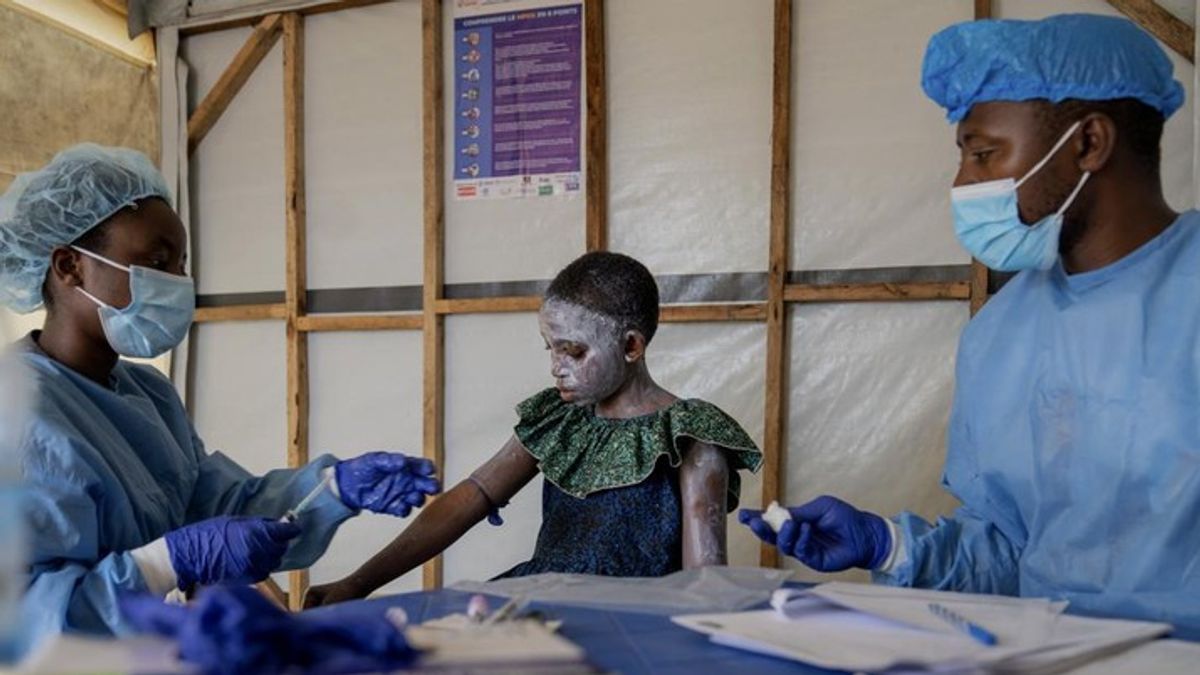YOGYAKARTA - Monkeypox disease or monkeypox has been declared a global health emergency. Mpox is a zoonosis disease or virus that is transmitted from animal to human. This dangerous virus itself has spread to Indonesia with the discovery of 88 confirmed cases, according to the Ministry of Health.go.id page.
It should be noted that Monkeypox disease attacks many children. Based on data from UNICEF, more than half of the Mpox cases in Congo are experienced by children. While in Burundi, as many as 60 percent of Mpox cases infect children and adolescents under the age of 20.
The Indonesian government itself has anticipated the spread of this monkeypox virus in Indonesia. So what is the reason the Mpox virus attacks children more often? This needs to be understood by increasing awareness and prevention of the Mpox disease.
Children are a group that is prone to the Mpox virus. Launching from the US Center for Disease Control and Prevention, children and adolescents can catch this virus through contact with people or animals infected or with contaminated materials.
The spread of the Mpox virus in children can occur from skin to skin close to the skin. For example, when holding hands, hugging, to sleeping on the same bed. Worse yet, this virus can spread to the fetus in pregnant women. In addition, newborns can also get the Mpox virus.
The Director of Postgraduates at YARSI University, Prof. Tjandra Yoga Aditama, said that a number of reasons why Mpox often attacks children. The following are several factors for Mpox disease that are vulnerable to children, according to the former Director of Infectious Diseases of WHO Southeast Asia:
The 1b Clade variant of the Mpox virus is now capable of being transmitted in various age groups, including children. The ability to transmit this virus is different from the spread of previous variants that have occurred more in adults.
Several countries in Africa that are being hit by conflict are experiencing massive population dislocations. This refugee situation is often followed by health problems, including an increased risk of the spread of thempox.
Malnutrition is one of the main factors that increase children's vulnerability to Mpox infection. Malnutrition in children will weaken their immune system, making children more susceptible to disease.
In addition to Mpox, African countries are also facing other disease outbreaks such asteger, polio, andterus. These various health problems also worsen the health situation and increase the risk of the spread of thempox.
SEE ALSO:
The low immunization coverage in several African countries has left many children unprotected from various diseases, including Mpox.
Limitation of health facilities, both in terms of diagnosis and treatment, also makes handling Mpox cases difficult. Moreover, handling in remote areas.
Low health awareness in society also affects the ease of transmission of the Mpox virus. In a community environment like this, they usually lack awareness about the risks and dangers of a disease.
Many children in Africa sleep crammed into a narrow place. Life habits like this increase the possibility of transmitting the virus through close physical contact.
Children often play in groups or in groups. This habit also increases direct contact and facilitates the spread of the virus.
Those are some reasons why Mpox disease attacks children more often. Various conditions in children greatly affect the potential for contracting the Mpox virus. To prevent this, people are required to pay attention to and maintain the health and cleanliness of the surrounding environment. Also read the use of the Mpox vaccine in Indonesia.
Stay up to date with the latest domestic and other overseas news on VOI. We present the latest and updated information nationally and internationally.
The English, Chinese, Japanese, Arabic, and French versions are automatically generated by the AI. So there may still be inaccuracies in translating, please always see Indonesian as our main language. (system supported by DigitalSiber.id)


















